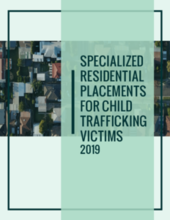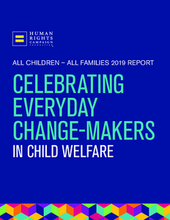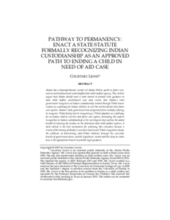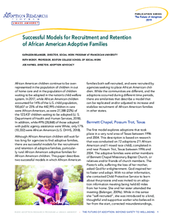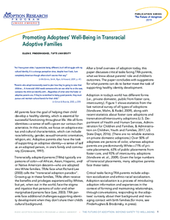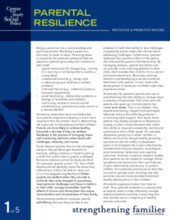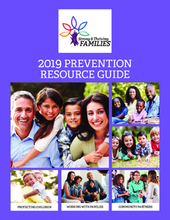Displaying 1071 - 1080 of 2176
The National Child Traumatic Network (NCTN) has published a list of measures that front line professionals can use to assess the exposure to trauma among migrant and refugee families and children.
This study outlines the policies, practices, and programming that have been implemented across the US to provide specialized responses to exploited and trafficked youth within residential placement settings.
This report highlights more than 70 child welfare agencies across the United States that partnered with the Human Rights Campaign Foundation’s All Children - All Families project to improve the services they provide to the LGBTQ community, including children in foster care and prospective foster and adoptive parents.
This article argues that the US state of Alaska should enact a state statute to provide clear guidance to state child welfare practitioners and state courts that Alaska’s state government recognizes an Indian custodianship created through Tribal law or custom as a pathway for Indian children to exit the overburdened state foster care system.
This paper describes two successful models in which African American families both self-recruited, and were recruited by agencies seeking to place African American children.
This paper discusses critical tasks facing adoptive parents of transracially adopted persons (TRAs), what we know about parents’ role and children’s outcomes.
This packet includes the research brief about each protective factor as well as an “action sheet” for service providers about their role in supporting families to build each protective factor.
The 2019 Prevention Resource Guide - created by the U.S. Department of Health and Human Services’ Children’s Bureau, Office on Child Abuse and Neglect, its Child Welfare Information Gateway, and the FRIENDS National Center for Community-Based Child Abuse Prevention - is designed to help individuals and organizations in every community strengthen families and prevent child abuse and neglect.
This article provides an overview of typical experiences for unaccompanied immigrant minors (UIMs), discusses the accompanying legal and clinical implications, and offers recommendations for psychological practice at the level of providers, training programs, and child-serving systems.
This single group pilot study explored the effect of child–parent relationship therapy (CPRT) for adoptive parents of preadolescents who reported attachment related concerns, stress in the parent–child relationship, and child behavior problems.


